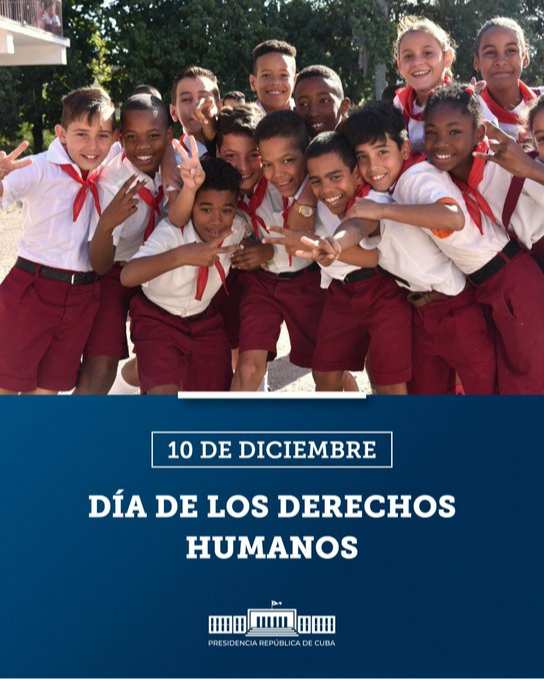
Cuba seeks to preserve its right to development
By: Roberto Morejón
Thousands of Cuban children and teenagers celebrated International Human Rights Day on December 10, in a country where the material hardships caused by the US blockade are accentuated, but where essential conquests continue.
The international community celebrated Human Rights Day, even though in many parts of the world this celebration was contrasted with painful realities such as the increase in inequality and poverty, wars, xenophobia and the consequences of international tensions.
In the largest of the Antilles, the promotion and protection of all civil rights for all people, with their interdependent and indivisible character, was ratified.
An example of this protection for the possible satisfaction of basic needs is illustrated by the strengthening of its legal and institutional machinery, as recognized and established in the Constitution of the Republic.
The Caribbean nation has ratified 44 of the 61 international human rights instruments, making it one of the countries with the highest number of ratifications.
Today, although the country's material security is diminishing due to the tightening of the blockade and its inclusion on the list of countries that, according to the United States, sponsor terrorism, the essential supports for the progress achieved in health, education, culture, sports and citizen participation in public affairs remain.
Today, in José Martí's homeland, the rule of law, the control of legality and the means to denounce the transgressions of any official are strengthened.
The monitoring of the most vulnerable has become more urgent in the face of inflation rates, the impossibility of increasing pensions and retirements for the time being, and delays in the provision of the basic food basket.
Today, the concept of subsidizing people and not products is making progress in the Caribbean nation, a mechanism that makes it possible, through social workers, to identify people in precarious situations in neighborhoods and communities.
In Cuba, where sexual and reproductive health and labor rights are protected, the concern is to reach the last poor neighborhood, where a disabled person, a single mother with children and the elderly may be the most affected by the material shortages of the present.

